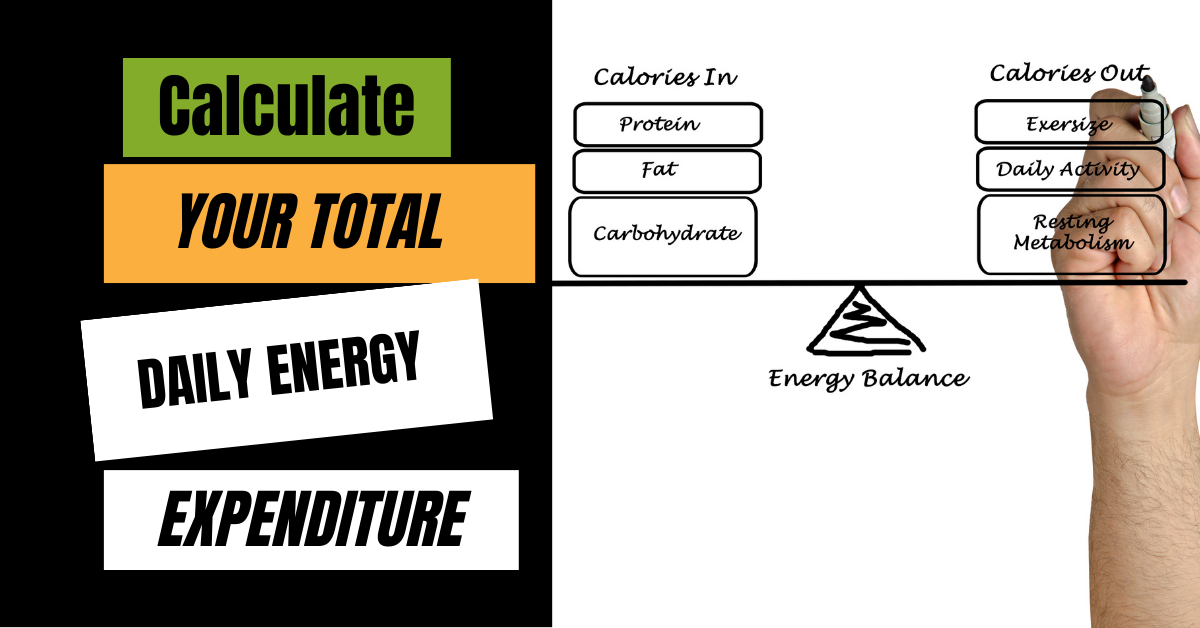If you’re looking to lose weight or gain muscle, understanding your Total Daily Energy Expenditure (TDEE) is crucial. Your TDEE represents the calories your body burns daily, including calories burned through physical activity, digestion, and resting metabolic rate. Knowing your TDEE, you can accurately calculate the calories you need to consume to achieve your health and fitness goals.
In this article, we’ll discuss a TDEE calculator, how to use one, and why knowing your TDEE is essential for weight loss or muscle gain.
What is a TDEE Calculator?
A TDEE calculator is an online tool that calculates your Total Daily Energy Expenditure based on several factors, including age, weight, height, gender, and physical activity level. The calculator will estimate the number of calories your body burns daily.
How to Calculate Your TDEE
Calculating your TDEE manually can be a complicated process involving multiple equations. Fortunately, several online TDEE calculators can do the work for you. Here’s how to use a TDEE calculator:
Input Your Personal Information
Most TDEE calculators will ask your age, weight, height, and gender. Some may also ask for your body fat percentage.
Choose Your Physical Activity Level
The amount of physical activity you do in a day affects your TDEE. It’s essential to be honest about your activity level to get an accurate TDEE estimate. Most TDEE calculators will ask you to choose from various physical activity levels, from passive to highly active.
Input Your Daily Exercise Routine
If you have a daily exercise routine, some TDEE calculators will allow you to input the type and duration of your workouts. This information helps provide a more accurate estimate of your TDEE.
Calculate Your TDEE
Once you’ve input all your information, the TDEE calculator will provide you with your Total Daily Energy Expenditure estimate.
Why Knowing Your TDEE is Essential
Knowing your TDEE is essential for weight loss or muscle gain. If you consume more calories than your TDEE, you’ll gain weight. If you consume fewer calories than your TDEE, you’ll lose weight. Knowing your TDEE can create a calorie deficit or surplus to achieve your desired weight loss or muscle gain goals.
For example, suppose your TDEE is 2,000 calories per day, and you want to lose weight. In that case, you must create a calorie deficit by consuming fewer than 2,000 calories daily. A calorie deficit of 500 calories per day would result in a weight loss of one pound per week (500 calories x 7 days = 3,500 calories per week, equivalent to one pound of weight loss).
On the other hand, if your TDEE is 2,000 calories per day, and you want to gain muscle, you’ll need to create a calorie surplus by consuming more than 2,000 calories per day. However, it’s essential to remember that the rest should be small, as consuming too many calories can result in unwanted fat gain.
Knowing your TDEE is crucial for weight loss or muscle gain as it helps you create a calorie deficit or surplus to achieve your goals.
Factors that Affect TDEE
Several factors affect your TDEE: age, weight, height, gender, and physical activity level. Here’s how these factors affect your TDEE:
Age:
Adjusting your calorie intake as you age to maintain a healthy weight is essential. As you age, your TDEE decreases. This is because your muscle mass naturally decreases as you get older, which results in a lower resting metabolic rate.
Weight:
Your weight affects your TDEE as well. The more you weigh, the more calories you burn in a day. This is because it takes more energy to move a heavier body. However, reducing your calorie intake is still necessary if you’re looking to lose weight.
Height:
Your height can also affect your TDEE. Taller individuals typically have a higher TDEE since they have a larger body surface area. This means their bodies require more energy to maintain their weight.
Gender:
Gender also plays a role in TDEE. Men typically have a higher TDEE than women since they have more muscle mass. This is because muscle burns more calories at rest than fat.
Physical Activity Level:
Your physical activity level is one of the most significant factors affecting your TDEE. Those who are more active burn more calories than those who are sedentary. It’s important to note that your TDEE can change depending on your level of physical activity, so adjusting your calorie intake accordingly is necessary.
Tips for Using a TDEE Calculator
Here are some tips for using a TDEE calculator to get the most accurate estimate:
Be honest about your physical activity level. If you’re unsure which class to choose, err on caution and select a lower activity level.
If you have a daily exercise routine, include it in the calculator. This will provide a more accurate estimate of your TDEE.
Remember to consider any health conditions you may have. Some medical conditions can affect your TDEE, so you must speak with your doctor if you have any concerns.
Remember that TDEE calculators provide estimates only. While they can help set goals, it’s essential to listen to your body and make adjustments as necessary.
Conclusion
Calculating your TDEE is essential for weight loss or muscle gain. Knowing your TDEE can create a calorie deficit or surplus to achieve your desired goals. TDEE calculators are helpful for determining your TDEE and should be used with a healthy diet and regular exercise routine. It’s important to remember that TDEE calculators only provide estimates and that adjustments may need to be made based on your needs and preferences.

